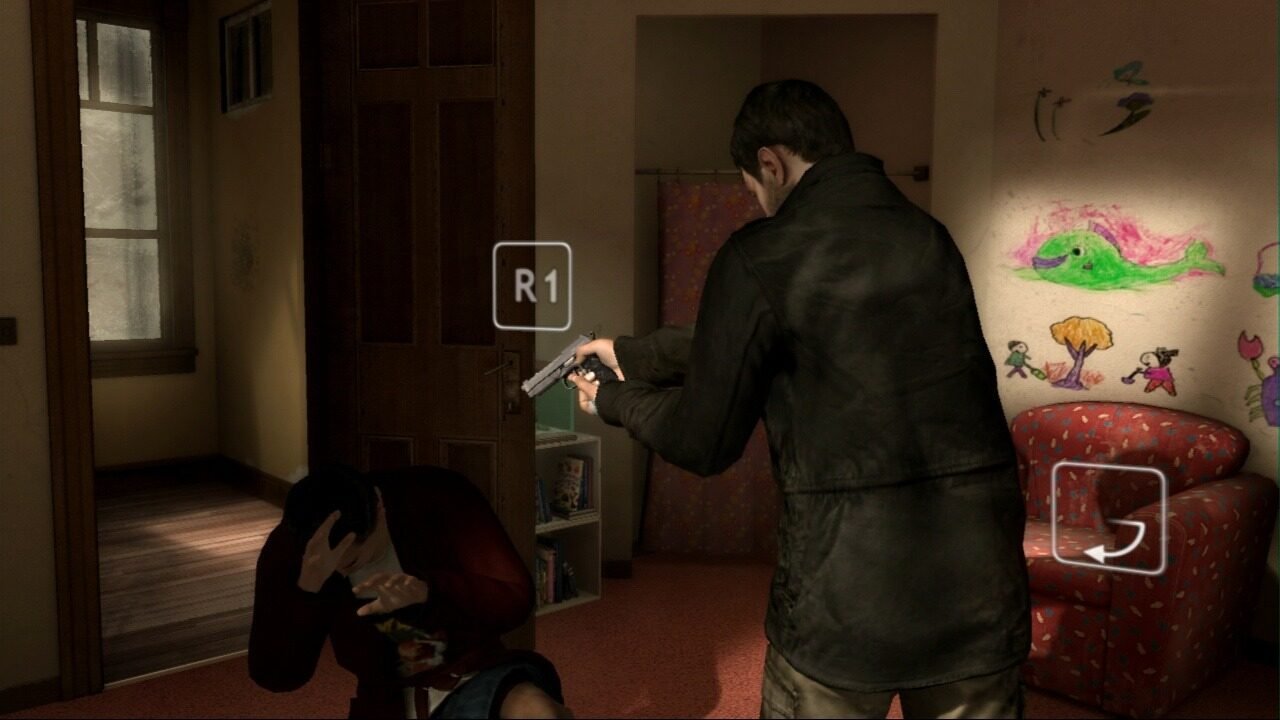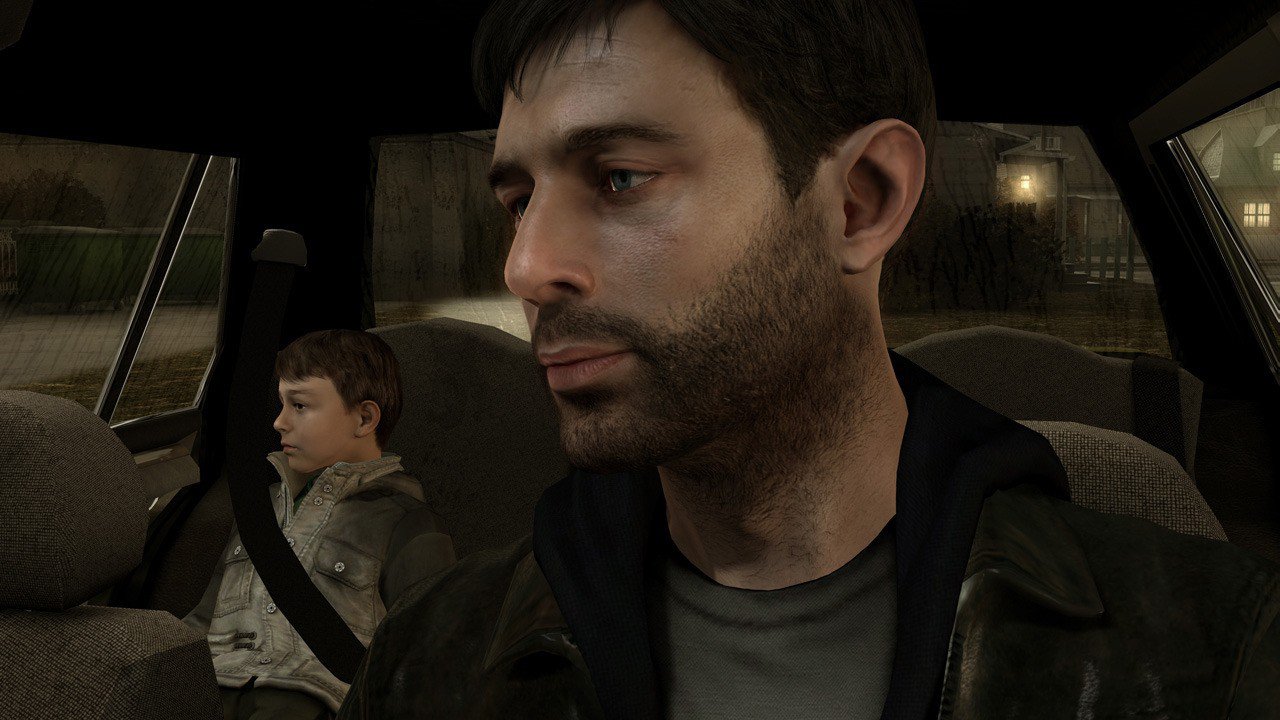Heavy Rain is one of the boldest experiments in narrative gaming—a cinematic descent into guilt, loss, and consequence.
Heavy Rain is going to provoke discussion. There will be arguments about what kind of game it is. There will be arguments about whether it’s even a game at all. Some people will call it a movie, others will call it an evolution of the adventure genre. Some will love it. Some will hate it. Some will “get it,” and others simply won’t. It’s likely one of the most interesting games of the current generation, if for no other reason than it engages debate about the medium and its audience, and does things no other game has attempted, like asking players to bear the consequences of their actions.
Indigo Prophecy 2.0
At its heart, Heavy Rain is a more evolved, realized version of the same concepts and motifs seen in David Cage’s previous game, Indigo Prophecy. That game was a daring, original experiment that ultimately failed due to issues with both the story and the interface. Heavy Rain, without giving away too many details, is about how four unrelated characters — a father, a journalist, an FBI agent and a private investigator — unite in opposition to a Philadelphia serial killer dubbed the Origami Killer.

Right from the start, Heavy Rain’s visuals establish its animators as serious contributors to this generation of gaming. The art direction is beautiful, moody and startlingly evocative, and it boasts the best facial capture and character detail seen in any game to date. The graphics are slightly let down by technical hiccups such as frequent screen tearing, but on a purely aesthetic level, Heavy Rain competes with other high-profile titles with ease.
Unfortunately, the audio doesn’t quite reach the same standard. While the soundtrack is among the best on the market, the voice acting is inconsistent, with an unpredictable mix of performances. While this wouldn’t be a major issue in most games, it’s a noticeable flaw in Heavy Rain, where narrative immersion is critical to the experience. Despite taking place in Philadelphia in 2011, only one of the actors sounds convincingly American. Based in Paris, Quantic Dream likely had budgetary limitations that forced them to work with European talent mimicking American accents — a minor blemish, but a blemish nonetheless.
Welcome To Emotainment
Heavy Rain is not a “video game” in the traditional sense. It’s still played, but the mechanics are different. It uses dialogue trees, quick-time events and decision points that affect the outcome of the plot, in addition to allowing players to steer characters around environments in third person. Rather than assigning the X button to jump or the square button to shoot, actions are all context-sensitive. Players explore an uncluttered screen devoid of health bars, ammo counts or other HUD elements, until an object or person becomes interactive.

At that point, visual prompts appear to guide action — for instance, pushing the right analog stick up to pick up an electric razor, then curving it in a half-circle to shave. When interacting with characters, options circle the player’s head, suggesting an attitude or line of questioning. Most significantly, there’s no fail state. No “Game Over” screen. Even if one of the four protagonists dies, the game adapts — the story simply moves on. In short, Heavy Rain urges players to live with their decisions, not reload to fix them.
All of these mechanics serve a different goal than what most players expect. Where traditional games offer enjoyment through empowerment, Heavy Rain, like some literature, cinema or theatre, is not necessarily “fun.” Players open to what it offers will find themselves engaging with the characters on a deeper level, experiencing dread, guilt, anxiety, regret and even disgust as the events unfold. The game asks the question, “How far would you go to save someone you love?” and supports it with themes of parenthood, trauma, profanity, nudity and sex.
This isn’t a game for everyone. The absence of traditional gameplay is sure to alienate a segment of the gaming population. The narrative focus may bore action fans. It’s flawed — but it’s also incredibly brave and dazzling in its ambition to provoke something other than the usual run-and-gun reactions in its audience.

It’s also one of the most “non-gamer-friendly” games available. Its cinematic qualities are so strong that it’s easy to hook casual observers who might never pick up a controller. Heavy Rain brands itself an “interactive drama,” a term that may sound clunky, but is arguably the most accurate description of what it aims to be. It’s not here to entertain with adrenaline; it’s here to leave you emotionally drained by the end.
It’s still too early to say whether Heavy Rain will be remembered as a mere speed bump on gaming’s road to artistic recognition — or a milestone. But one thing is certain: players have never experienced anything quite like it. It may not be for everyone, but everyone should try it at least once. The adventure genre has reinvented itself — and it’s grimmer, darker, more emotional and more sophisticated than anyone expected.






